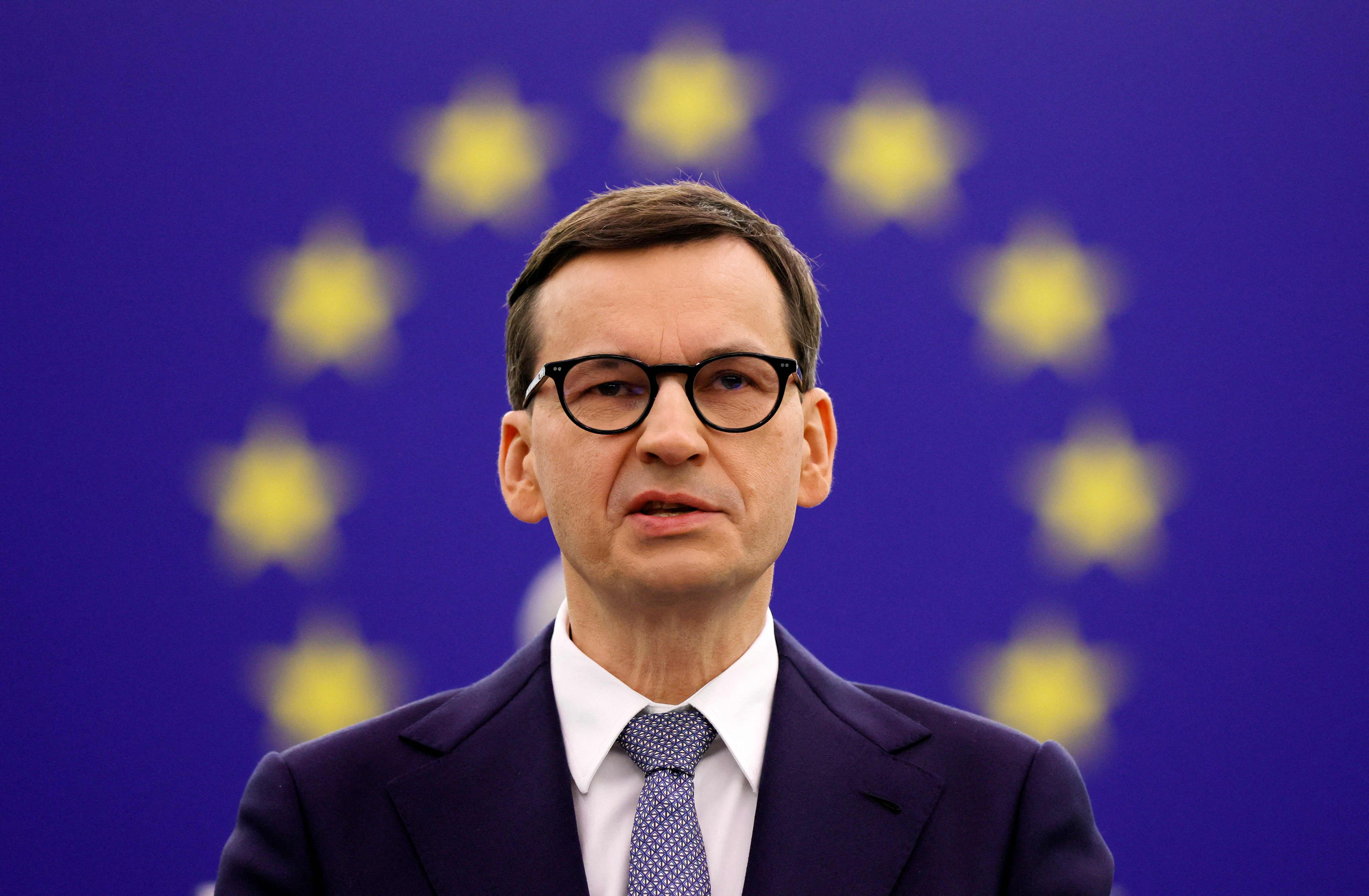Don’t mention the war! EU and Poland clash again
The EU is holding back €36bn in resilience funds for Poland intended for pandemic recovery

The European Union’s executive has hit back at the Polish prime minister for his use of war rhetoric after accusing Brussels of making demands of Warsaw with a “gun to our head” in an interview with the Financial Times.
Mateusz Morawiecki also said that for the EU to withhold cash over rule of law issues would be like starting “the third world war”.
The comments follow months of conflict over changes made to the Polish courts. Brussels believes the adjustments erode democratic checks and balances, and the European Commission is holding up billions of euros to Poland earmarked in a pandemic recovery plan.
When asked if Poland could use its veto power to block legislation in retaliation, for instance on climate issues, Morawiecki said: “If they start the third world war, we are going to defend our rights with any weapons which are at our disposal.”
In response to the prime minister’s comments, commission spokesman Eric Mamer described the EU as “a project that very successfully contributed to establishing a lasting peace among its member states”.
“There is no place for rhetoric referring to war,” he added.
EU nations have warned for years over what they see as a backsliding of democratic principles in Poland when it comes to an independent judiciary and free media. They said Morawiecki’s nationalist government stacked the constitutional court with handpicked judges and then had the same court challenge the supremacy of EU law.
To counter this, Morawiecki claims the EU institutions are so power-hungry that they treat the 27 member nations as mere vassals, grabbing power without a legal base and imposing its values against the wishes of sovereign peoples.
And by threatening sanctions, he said the EU was using plain “blackmail”.
Even if many potential sanctions would be months – if not years – away, the EU is holding back €36bn in resilience funds for Poland aimed at helping the nation bounce back from the pandemic. It hasn’t released the funds because Poland needs to meet certain conditions that many leaders say necessitate legal changes Morawiecki refuses to make.
“I cannot see a situation if this is still lingering, that the commission will decide on the resilience plan for Poland,” said the Dutch prime minister Mark Rutte. “The general issues around the rule of law have to be addressed. This was very clear,” he said, adding a large majority of leaders felt that way.
Morawiecki also faces criticism from his Polish political opponents, with many deeply worried about Poland’s increasing isolation within the EU.
Donald Tusk, the head of the leading opposition party in Poland, reacted to the “war” comment by saying: “In politics, stupidity is the cause of most serious misfortunes.”
The government spokesman, Piotr Muller, told Polish media that the prime minister’s comment amounted to hyperbole and should not be taken literally.
The nationalist ruling party in Poland, Law and Justice, has been in conflict with Brussels since winning power in 2015 over a number of matters, including migration and LGBT+ rights. The longest-running dispute, however, has centred on the Polish government’s attempts to take political control of the judiciary.
The matter came to a head earlier this month when the constitutional court ruled that some key parts of EU law are not compatible with the nation’s constitution. The ruling by a court filled with Law and Jutice loyalists was made after Morawiecki asked it to rule on whether EU or national law has primacy.
Commission president Ursula von der Leyen said last week that it was the first time ever that a national court found “that the EU treaties are incompatible with the national constitution”.
“This ruling calls into question the foundations of the European Union,” von der Leyen said. “It is a direct challenge to the unity of the European legal order.”
Subscribe to Independent Premium to bookmark this article
Want to bookmark your favourite articles and stories to read or reference later? Start your Independent Premium subscription today.

Join our commenting forum
Join thought-provoking conversations, follow other Independent readers and see their replies